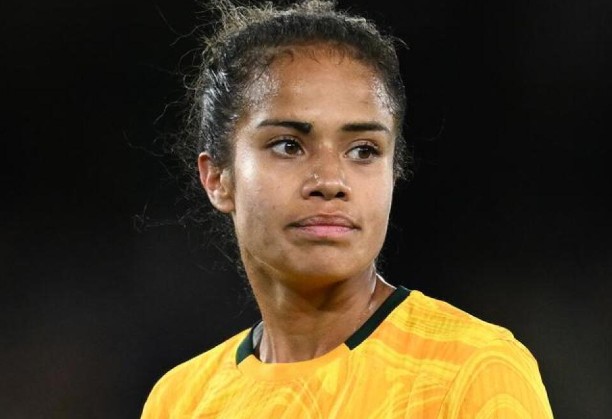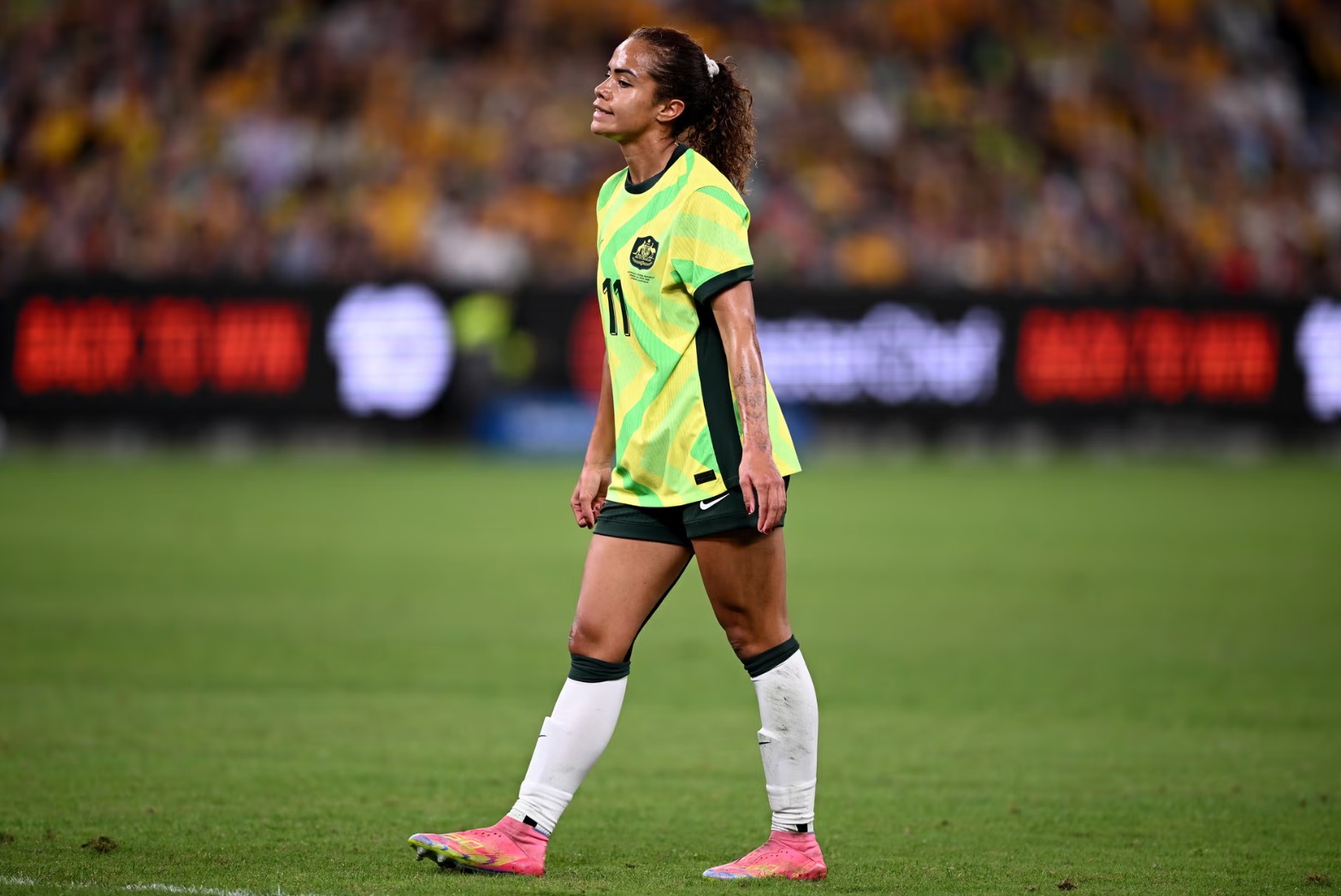
Mary Fowler’s ACL injury leaves Matildas facing up to Asian Cup without key weapon
The news of Mary Fowler’s sudden exit from Manchester City’s FA Cup semi-final against Manchester United earlier this week left Australian football fans holding their breath. As the forward’s right knee gave way while stretching to receive a pass, the initial hope from Manchester City’s interim coach, Nick Cushing, was that the injury wasn’t as serious as it seemed. However, those fears were confirmed when it was revealed that Fowler had ruptured her anterior cruciate ligament (ACL), putting her Asian Cup ambitions on the line.
The timing of this injury couldn’t have been worse. Fowler, at just 22, has quickly become one of the brightest stars in Australian football. With a Women’s Asian Cup on home soil less than a year away, the hopes of both her club and country were tied to her continued success. But now, as Fowler faces the long road to recovery, her absence from the Matildas’ squad for the tournament is a real possibility.

A Personal Blow for Fowler: The Road to Recovery
For Mary Fowler, the ACL injury is not only a setback for her career but also a deeply personal challenge. The road back from such an injury is notoriously difficult, requiring months of rehabilitation, isolation from teammates, and the constant mental and physical strain of recovery. ACL injuries, particularly in women’s football, are unfortunately not uncommon, and the recovery process is long and often fraught with setbacks.
Fowler had been experiencing a breakout season with Manchester City, stepping up in a big way after a series of injuries sidelined her teammates. With her ability to score goals, provide assists, and dictate play, Fowler had cemented her role as one of City’s most important players. She scored 10 goals across all competitions and was leading the Women’s Super League (WSL) with seven assists. Her form had been nothing short of exceptional, and her performance in recent international friendlies had sparked hope for her potential impact with the Matildas.
Her position on the left wing had allowed her to thrive in green and gold, creating a dynamic attacking option for the national team. With Sam Kerr sidelined due to her own ACL injury, Fowler’s rise as the face of Australian football had seemed almost destined. The Matildas were counting on her, and the Australian public had pinned their hopes on Fowler becoming a star of the 2023 Women’s World Cup and the 2024 Asian Cup.

Fowler’s Absence: A Test for the Matildas’ Depth and Strategy
As the Matildas look ahead to the Asian Cup, they now face the daunting task of preparing for the competition without Fowler in their ranks. The team’s coaching situation, still in limbo after a long search for a new head coach, will now include the added complication of planning for Fowler’s absence. Whoever takes the reins will need to find a way to fill the gap left by the dynamic forward and adjust the team’s tactical setup to make up for her creativity and goal-scoring abilities.
While no one player is irreplaceable, Fowler’s unique combination of skill, vision, and attacking flair made her an essential part of the Matildas’ plans. As one of the key figures in the team’s evolving attack, Fowler’s injury is a massive blow to the Matildas’ chances of success in the Asian Cup. Yet, as with all injuries, there is hope. Every recovery timeline is unique, and while some players take longer to return to peak performance, others can recover more quickly.
The recovery time for ACL injuries in women’s football has varied. Some players, like Ellie Carpenter, have made remarkable recoveries, returning to the field just eight months after their injury. On the other hand, Sam Kerr’s own recovery from an ACL injury has stretched into 15 months, a reminder of the unpredictable nature of this type of setback. Fowler is still young, and her body may respond well to the intensive rehabilitation required to get back on the field.